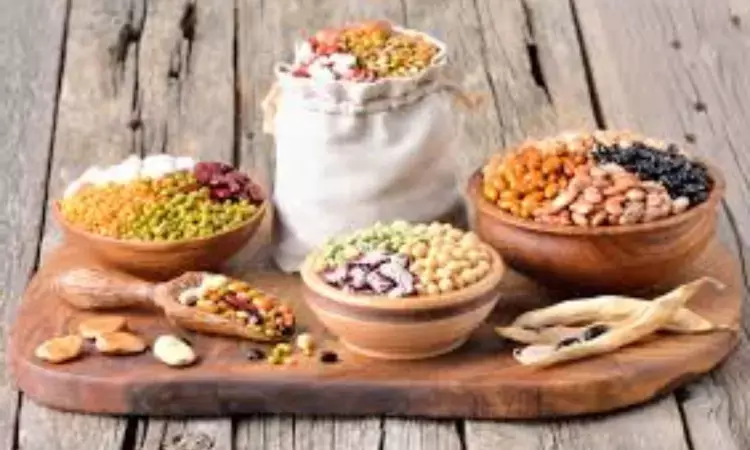- Home
- Medical news & Guidelines
- Anesthesiology
- Cardiology and CTVS
- Critical Care
- Dentistry
- Dermatology
- Diabetes and Endocrinology
- ENT
- Gastroenterology
- Medicine
- Nephrology
- Neurology
- Obstretics-Gynaecology
- Oncology
- Ophthalmology
- Orthopaedics
- Pediatrics-Neonatology
- Psychiatry
- Pulmonology
- Radiology
- Surgery
- Urology
- Laboratory Medicine
- Diet
- Nursing
- Paramedical
- Physiotherapy
- Health news
- Fact Check
- Bone Health Fact Check
- Brain Health Fact Check
- Cancer Related Fact Check
- Child Care Fact Check
- Dental and oral health fact check
- Diabetes and metabolic health fact check
- Diet and Nutrition Fact Check
- Eye and ENT Care Fact Check
- Fitness fact check
- Gut health fact check
- Heart health fact check
- Kidney health fact check
- Medical education fact check
- Men's health fact check
- Respiratory fact check
- Skin and hair care fact check
- Vaccine and Immunization fact check
- Women's health fact check
- AYUSH
- State News
- Andaman and Nicobar Islands
- Andhra Pradesh
- Arunachal Pradesh
- Assam
- Bihar
- Chandigarh
- Chattisgarh
- Dadra and Nagar Haveli
- Daman and Diu
- Delhi
- Goa
- Gujarat
- Haryana
- Himachal Pradesh
- Jammu & Kashmir
- Jharkhand
- Karnataka
- Kerala
- Ladakh
- Lakshadweep
- Madhya Pradesh
- Maharashtra
- Manipur
- Meghalaya
- Mizoram
- Nagaland
- Odisha
- Puducherry
- Punjab
- Rajasthan
- Sikkim
- Tamil Nadu
- Telangana
- Tripura
- Uttar Pradesh
- Uttrakhand
- West Bengal
- Medical Education
- Industry
Increasing legumes and reducing red meat good for bone health without compromising protein intake

A study conducted at the University of Helsinki demonstrated that the partial substitution of red and processed meat with pea-and faba bean-based food products ensured sufficient intake of amino acids in the diet and did not negatively affect bone metabolism.
“Decreasing the consumption of red and processed meat in the diet to the upper limit of the Planetary Health Diet while increasing the consumption of legumes cultivated in Finland, such as peas and faba beans, is safe from the perspective of protein nutrition. Similarly, bone health is not compromised by such a dietary change either,” says Docent Suvi Itkonen from the Faculty of Agriculture and Forestry.
In the BeanMan study, 102 Finnish men followed a study diet for six weeks.
- One group consumed 760 grams of red and processed meat per week, which accounted for 25% of the total protein intake. The amount corresponds to the average protein consumption of Finnish men.
- The other group consumed food products based on legumes, mainly peas and faba beans, corresponding to 20% of the total protein intake. In addition, the amount of red and processed meat consumed per week in this group amounted to the upper limit of the Planetary Health Diet (200 g or 5% of the total protein intake).
Otherwise, the study subjects followed their habitual diet but were not allowed to eat other red or processed meat or legumes than those provided by the study.
The researchers did not find any differences between the dietary groups in markers of bone formation or resorption. Neither did the intake of calcium or vitamin D differ between the groups. Calcium intake was in line with the current dietary recommendations, and the intake of vitamin D was very close to the recommendations. Mean essential amino acid and protein intakes met the recommendations in both groups.
“Reducing read meat consumption is extremely important in terms of environmental impact,” Itkonen notes.
Increasingly plant-based diets are becoming more and more popular, and the recently updated Nordic Nutrition Recommendations also emphasise the restriction of meat consumption and the moderation of dairy consumption.
“In this study, the subjects consumed dairy products as in their habitual diets, thus their calcium and vitamin D intakes were unchanged. However, in terms of bone health, it is important to bear in mind that if one reduces the amount of dairy in the diet, it is necessary to ensure the intake of calcium and vitamin D from other sources. These sources can be plant-based beverages and yoghurt-like products fortified with those nutrients or, when necessary, dietary supplements,” Itkonen points out.
Reference:
Itkonen, S., Karhu, P., Pellinen, T., Lehtovirta, M., Kaartinen, N., Männistö, S., . . . Pajari, A. (2023). Effects of partial replacement of red and processed meat with non-soya legumes on bone and mineral metabolism and amino acid intakes in BeanMan randomised clinical trial. British Journal of Nutrition, 1-10. doi:10.1017/S0007114523001514
Dr Kamal Kant Kohli-MBBS, DTCD- a chest specialist with more than 30 years of practice and a flair for writing clinical articles, Dr Kamal Kant Kohli joined Medical Dialogues as a Chief Editor of Medical News. Besides writing articles, as an editor, he proofreads and verifies all the medical content published on Medical Dialogues including those coming from journals, studies,medical conferences,guidelines etc. Email: drkohli@medicaldialogues.in. Contact no. 011-43720751


